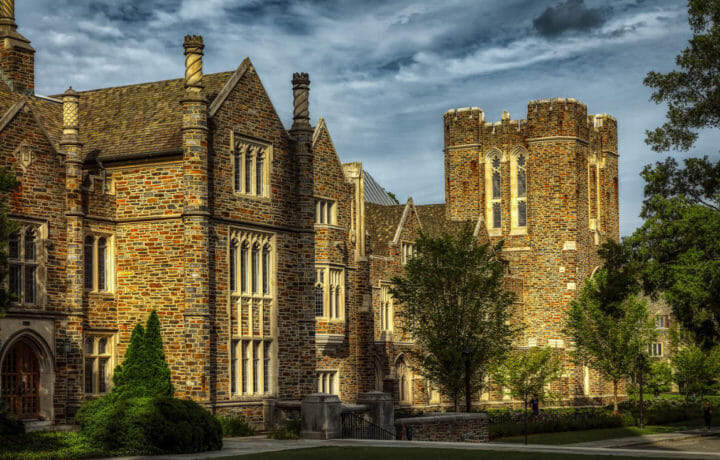Choosing a post-secondary institution is one of the most important decisions many people will make in their lives. Not only is choosing a school an emotional decision, but it is also an important financial decision as well. According to the U.S. News and World Report survey, the average 2019/2020 private school tuition and fees was $36,801. One private school charges as much as $80,000 per year in tuition and fees.
With the Post 9/11 GI Bill only paying up to $25,162.14 per year for the 2020/2021 academic year, that can leave a significant difference left for the veteran to pay over the course of the four years that it takes to get a degree. Add in graduate school and the student debt can climb even higher.
5 Top Schools for Veterans
However, some private schools have generous financial aid programs, so students can get the private education experience they want, but graduate with very little student debt. Below are 5 of the top low student debt schools.
1. Harvard University
Established by the Massachusetts Bay Colony in 1636 and located in Cambridge, MA, it is the oldest institution in the U.S. Because families making less than $65,000, their children students get a free four-year ride, most students graduate from Harvard debt-free or with very little debt. Within Harvard itself are 12 degree-granting schools that serve its 20,000 students. Veterans can enter as either first year or transfer students (depending on the amount of college); Veterans with two or more years of college are not eligible to attend Harvard. Also, the application fee is waived for veterans.
2. Duke University
Duke is one of the more difficult schools to get accepted to, with only 7.7% applicants accepted. In spite of that, this Durham, NC 6,526 students come from a diverse population. For example, the majority of its 2023 class of come from North Carolina, California, New York, Florida and New Jersey in the U.S. and from China, India, Korea, the United Kingdom and Canada from abroad. Their majors are: Computer Science, Economics, Public Policy, Biology and Psychology.
3. Princeton University
Just because this school Princeton, NJ school is one of the most elite does not mean it is financially unattainable. Like Harvard, families with an income of $65,000 or less, students qualify for a free four-year ride. For the Class of 2023, the average financial aid grant was more than $56,000. Eight two percent of recent graduates walked across the stage debt-free. Princeton also waives the application fee for currently serving military personnel or veterans.
4. Wellesley College
Established in 1870 and located in Wellesley, MA, it was originally a college for women. Today, it is co-ed and ranked #3 among liberal arts colleges. Over 70% of its 2,391 students will participate in an internship while here. Former graduates include Hillary Clinton and Madeleine Albright.
5. Cooper Union for the Advancement of Science
Located in the East Village of Manhattan, NY, this school was established in 1839. With tuition free until 2014, it now offers at least half-tuition scholarships to its incoming students. It has three main schools: Architecture, Art and Engineering.
| School | Graduation Rate | Median Debt | 10-Year NPV | 40-Year NPV | Yellow Ribbon Program? |
| Harvard | 97% | $7,000 | $286,000 | $1,967,000 | Yes |
| Princeton | 97% | $7,500 | $242,000 | $1,642,000 | Yes |
| Duke | 95% | $9,000 | $173,000 | $1,754,000 | Yes |
| Wellesley | 90% | $9,675 | $119,000 | $1,258,000 | Yes |
| Cooper | 86% | $10,000 | $161,000 | $1,378,000 | Yes |
NOTE: NPV is an abbreviation for Net Present Value and is the difference between the cost of investing in college today against the potential earnings over time. In this case, the time intervals are 10 and 40 years.
Check All of Your Payment Options Before You Rule Out a Private School
The point is don’t rule out private schools because you don’t think you can afford to go. Between the Post GI Bill, Yellow Ribbon Program and school financial aid packages, many of them are affordable. As the chart shows, private school expense at these schools can pay off as one’s career evolves. With high graduation rates, low student debt and high NPV, any of these schools would be a great choice.




